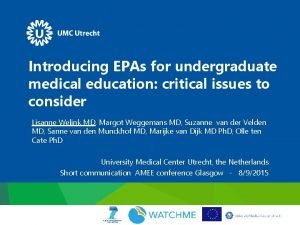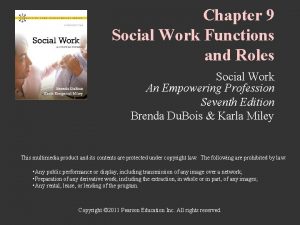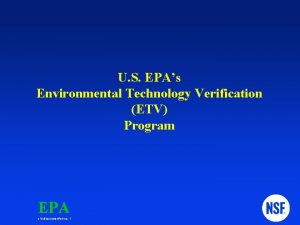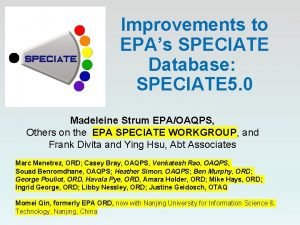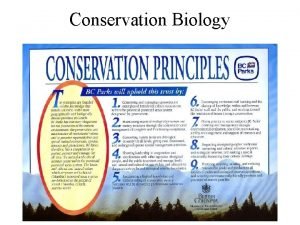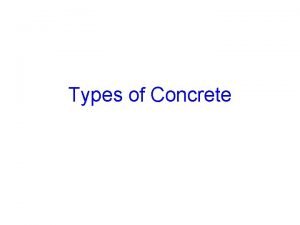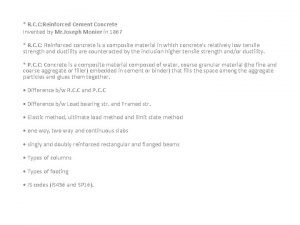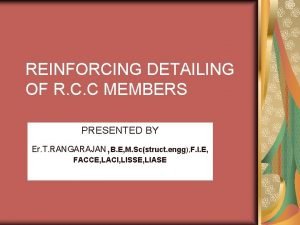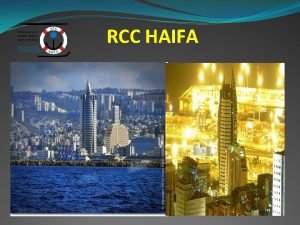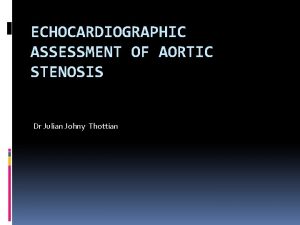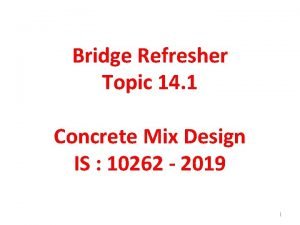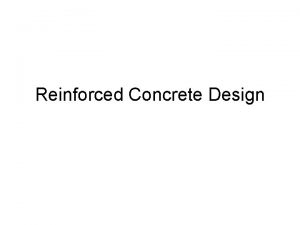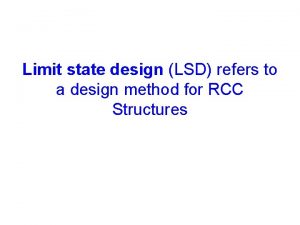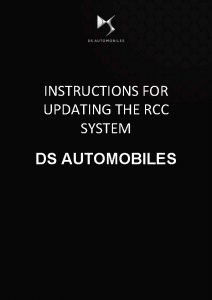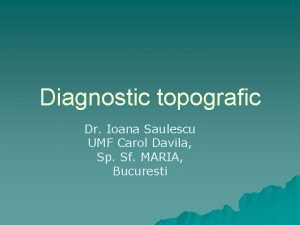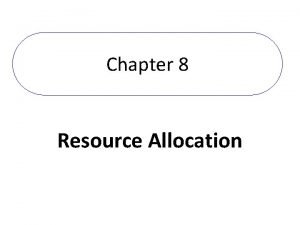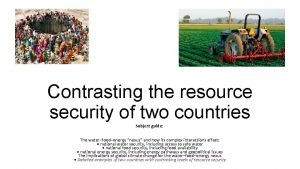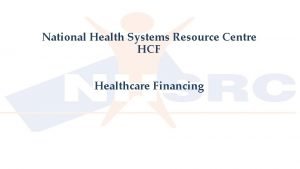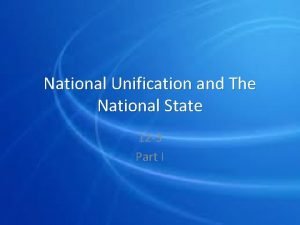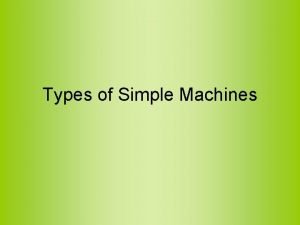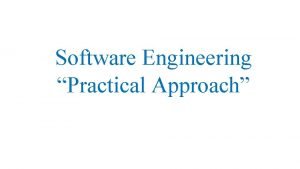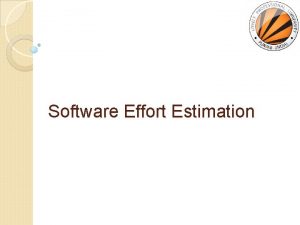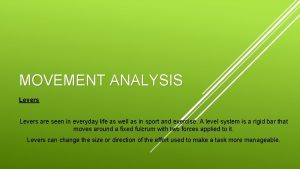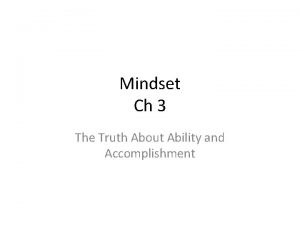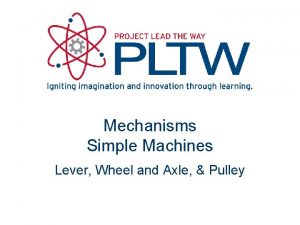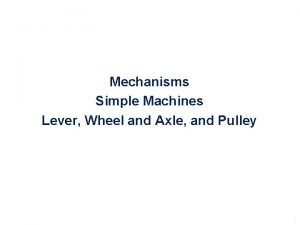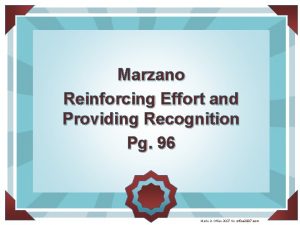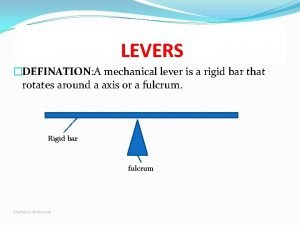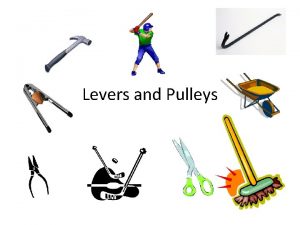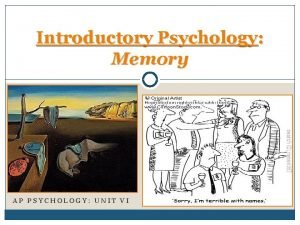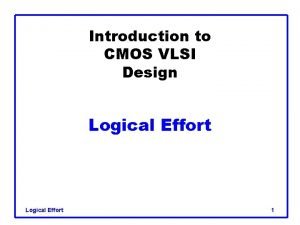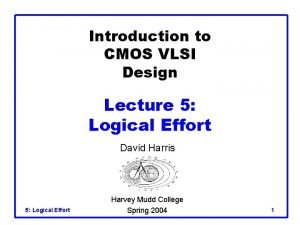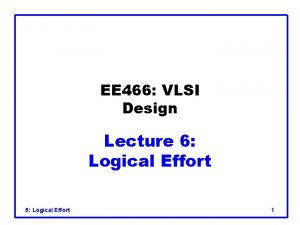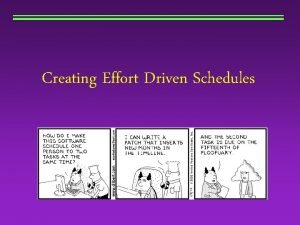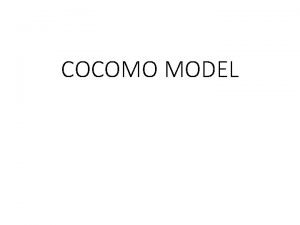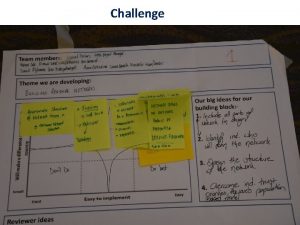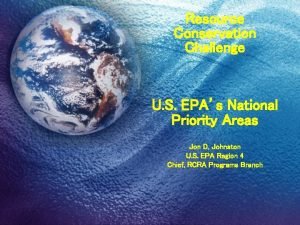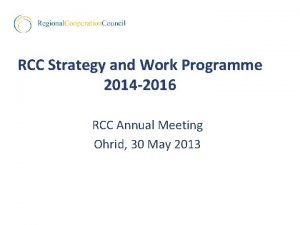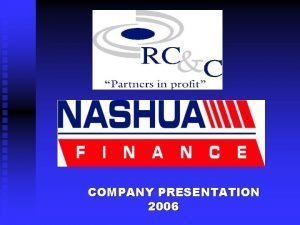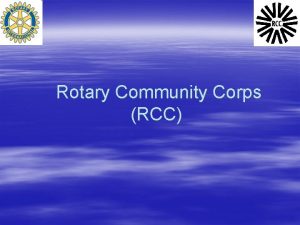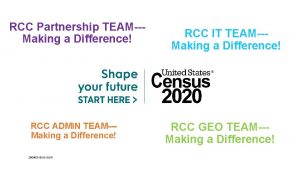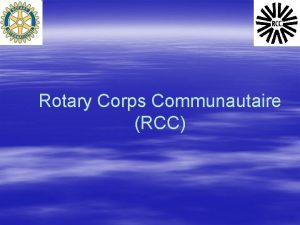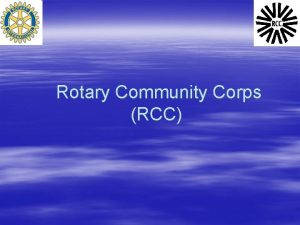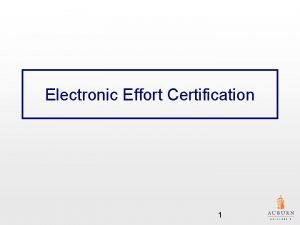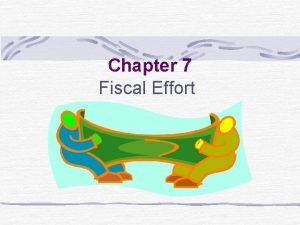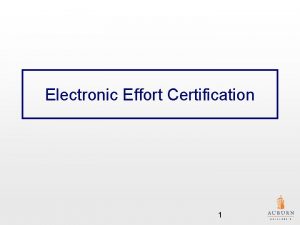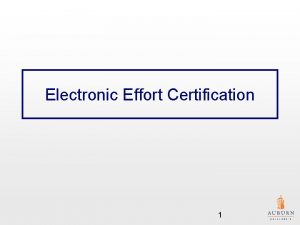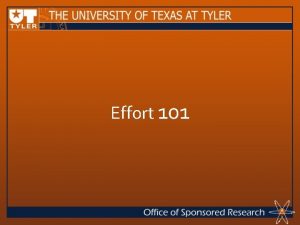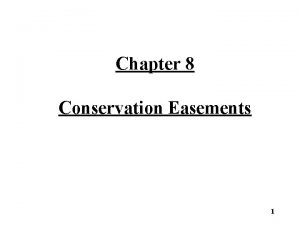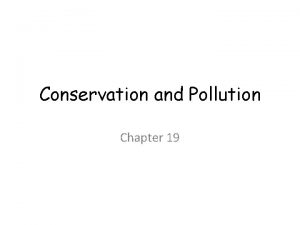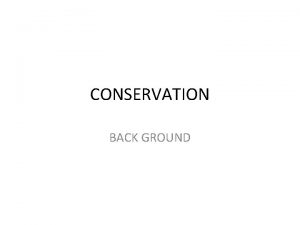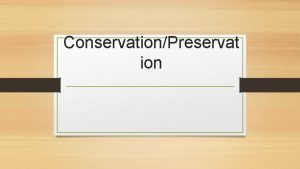Resource Conservation Challenge RCC EPAs national effort to


























































- Slides: 58










Resource Conservation Challenge (RCC) EPA's national effort to conserve natural resources and energy by managing materials more efficiently

Reuse Reusing items -- by repairing them, donating them to charity and community groups, or selling them -- also reduces waste. Reusing products, when possible, is even better than recycling because the item does not need to be reprocessed before it can be used again. More About Reuse

Ways to Reuse Using durable coffee mugs. Using cloth napkins or towels. Refilling bottles. Donating old magazines or surplus equipment. Reusing boxes. Turning empty jars into containers for leftover food. Purchasing refillable pens and pencils. Participating in a paint collection and reuse program.

Recycling turns materials that would otherwise become waste into valuable resources. It generates a host of Environmental, Financial, and Social benefits. Materials like glass, metal, plastics, and paper are collected, separated and sent to facilities that can process them into new materials or products. Recycling is one of the best environmental success stories of the late 20 th century.

Benefits of Recycling Conserves resources for our children's future. Prevents emissions of many greenhouse gases and water pollutants. Saves energy. Supplies valuable raw materials to industry. Creates jobs. Stimulates the development of greener technologies.

Reduces the need for new landfills and incinerators Buying Recycled Products More About Buying Recycled Products Waste is – Lost raw material, Lost product, Lost resource, Lost profit. Generating significant amounts of waste is not sustainable for today's society. Nearly everything we do leaves behind some waste

Composting Another form of recycling is composting. Composting is the controlled biological decomposition of organic matter, such as food and yard wastes, into humus, a soillike material. Composting is nature's way of recycling organic waste into new soil, which can be used in vegetable and flower gardens, landscaping, and many other applications

Benefits of Composting----Keeps organic wastes out of landfills. Provides nutrients to the soil. Increases beneficial soil organisms (e. g. , worms and centipedes). Suppresses certain plant diseases. Reduces the need for fertilizers and pesticides. Protects soils from erosion. Assists pollution remediation.

Household Hazardous Waste Reduction and recycling of HHW conserves resources and energy that would be expended in the production of more products. Reuse of hazardous household products can save money and reduce the need for generating hazardous substances. Proper disposal prevents pollution that could endanger human health and the environment. HHW Reduction, Reuse, Recycling, and Disposal Options The options of reduction, reuse, recycling, ARE all important tools to safely manage HHW. .

Reduction at Home Collection Options—Municipalities and Local Governments Facilitating Reuse, Recycling, and Proper Disposal Permanent collection or exchange Special collection days Local business collection sites Disposal Options

The Municipal Solid Wastes (Management and Handling) Rules, 2000. Central Government notified in exercise of the Powers conferred by Section 3, 6 and 25 of the Environment (Protection) Act, 1986 with the objective of regulating the management and handling of the Municipal Solid Wastes.

Applicability: - Apply to all municipal authorities responsible for collection, segregation, storage, transportation processing and disposal of municipal solid wastes.

Responsibility of Municipal Authority: Every municipal authority shall, within the territorial area of the municipality, be responsible for the implementation of the provisions of these rules, and for any infrastructure development for collection, storage, segregation, transportation, processing and disposal of municipal solid wastes. the municipal authority or an operator of a facility shall make an application in Form-I, for grant of authorisation for setting up waste processing and disposal facility including landfills from the State Board or the Committee in order to comply with the implementation programme laid down in Schedule-I.



the municipal authority shall comply with these rules as per the implementation schedule laid down in Schedule-I. The municipal authority shall furnish its annual report in Form-II. (a to the Secretary-incharge of the Department of Urban Development ) of the concerned State or as the case may be of the Union Territory, in case of a metropolitan city; or (b to the District Magistrate or the Deputy Commissioner ) concerned in case of all other town and cities, with a copy to the State Board or the Committee on or before the 30 th day of June every year.






















Rear Of Trash Compactors

Reuse

Reuse

Recyclable Drop-off Area

Commercial Trash Drop-off

New Recycling Center

Bulky Waste

Municipal Solid Waste

Waste Management: Waste Treatment - Plasma Discharge Technology The need for the ultimate Waste Destruction offered by plasma discharge technology is evident from population growth in all nations, deterioration of water supplies, increased production of toxic wastes and infectious hospital wastes, and the diminishing amount of land that can be used for municipal solid waste dumps. Because of these increasing volumes of all types of wastes and the increased risk to human health associated with such growth, it is prudent to use a technology that offers the destruction of wastes and does not generate new toxic wastes. The major advantages of plasma treatment systems are cost effectiveness and technical efficiency. Upon acceptance of the waste stream, the plasma system destroys organics creating harmless elemental gases and particulate and at the same time reduces inorganic oxides to a glass-like by product.

As it destroys the wastes, the plasma system can create salable byproducts, which offset operating costs and have value to society, e. g. , hot water for district heating, steam for industrial and hospital use, fuel gas for heating, and aggregate for a variety of uses. While the application of plasma discharge technology to environmental purposes is a relatively new process, this technology has been used for decades in the metals industry. It is a proven technology with an extensive track record. Because of the shift in the US to plasma discharge technology in the final destruction of radioactive and hazardous wastes, other nations can learn from the US experience and avoid intermediate technologies. They can move directly to the proven plasma discharge technology approach for destroying industrial and municipal wastes. Allied can offer assistance in determining alternatives, designing the most optimum system for a client, insuring the most effective technology transfer, and operation

Combined Plasma-Discharge and Joule-Heating Bath (Graphite electrodes

 Epa medical education
Epa medical education Epas enablers
Epas enablers Epas technologies
Epas technologies Herojinis epas
Herojinis epas Epas database
Epas database Welcome to teen challenge uk - teen challenge uk
Welcome to teen challenge uk - teen challenge uk Conservation ethics
Conservation ethics Density of rcc
Density of rcc Rotary rcc
Rotary rcc Rcc reinforced cement concrete
Rcc reinforced cement concrete Rcc rn prerequisites
Rcc rn prerequisites How to calculate haunch bar length
How to calculate haunch bar length Rcc haifa
Rcc haifa Rcc in moreno valley
Rcc in moreno valley Aortic stenosis echo criteria
Aortic stenosis echo criteria Concrete grade ratio table
Concrete grade ratio table Compressive strength of concrete
Compressive strength of concrete Working stress and limit state method
Working stress and limit state method Sasis rcc
Sasis rcc What is a slanted roof called
What is a slanted roof called Jason perry md
Jason perry md Bavp diagnostic
Bavp diagnostic Rcc module
Rcc module Resource leveling is the approach to even out the peaks of
Resource leveling is the approach to even out the peaks of Perbedaan resource loading dan resource levelling
Perbedaan resource loading dan resource levelling National numeracy challenge
National numeracy challenge National history challenge
National history challenge Ciphers for beginners
Ciphers for beginners What is the meaning of “national resource security”?
What is the meaning of “national resource security”? National charter school resource center
National charter school resource center National board resource center
National board resource center National health systems resource centre
National health systems resource centre National association of school resource officers
National association of school resource officers National unification and the national state
National unification and the national state Lever simple machine
Lever simple machine Effort distribution in software engineering
Effort distribution in software engineering Effort certification software
Effort certification software Justification of effort
Justification of effort Examples of levers in everyday life
Examples of levers in everyday life The willingness to exert high levels of effort
The willingness to exert high levels of effort Low-effort syndrome
Low-effort syndrome Wheel and axle mechanism
Wheel and axle mechanism Ima wheel and axle
Ima wheel and axle Reinforcing effort and providing recognition
Reinforcing effort and providing recognition Market research on listening answers
Market research on listening answers Definition of effort force
Definition of effort force Example of lever
Example of lever Fle levers
Fle levers Source monitoring
Source monitoring Branching effort
Branching effort Branching effort examples
Branching effort examples Return to old covenant
Return to old covenant Make every effort to live in peace
Make every effort to live in peace Effort and perseverance
Effort and perseverance Matrice gain effort
Matrice gain effort Logical effort vlsi
Logical effort vlsi Ms project effort driven
Ms project effort driven Effort adjustment factor
Effort adjustment factor How do machines make work easier
How do machines make work easier
